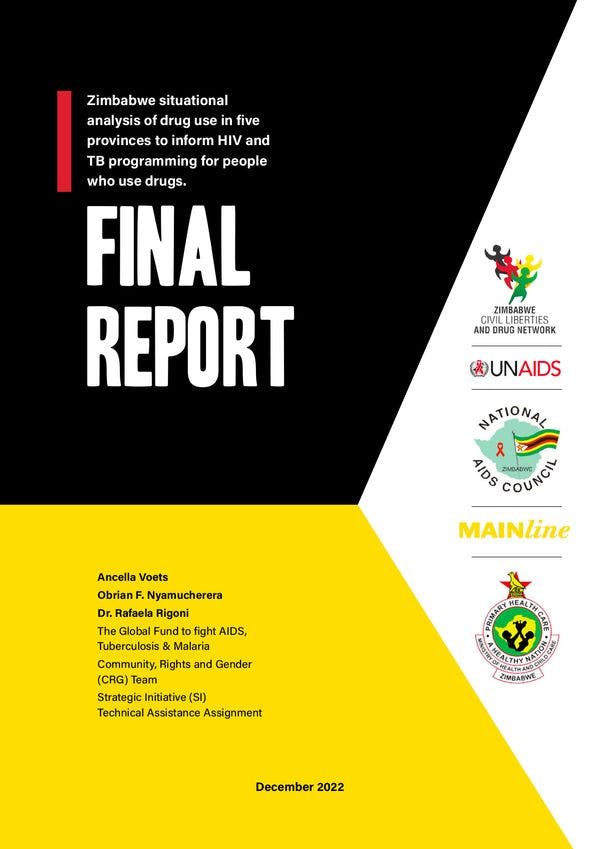Zimbabwe situational analysis of drug use in five provinces to inform HIV and TB programming for people who use drugs
Foreword by the Zimbabwe Civil Liberties and Drug Network
Zimbabwe is experiencing a challenge with drug use. This challenge is a cross-cutting issue affecting youthful populations in their diversity including key and vulnerable population groups. It is every nation’s dream to have ample opportunities for youth to flourish, so they don’t get desperate and resort to drugs. So, systems should be in place to improve the health of people who use and inject drugs. In trying to understand the challenges associated with drug use in Zimbabwe, there is a need for all stakeholders to put more effort and commitment in trying to mitigate challenges faced by people who use drugs.
Whilst Zimbabwe seeks a solution to drug use amongst its people, Zimbabwe’s drug laws are not helping. The current drug laws, especially the Dangerous Drugs Act Chapter 15 and The Criminal Code Chapter 9:23 s56 have been developed mainly to counter drug trafficking and diversion of controlled drugs. It is high time Zimbabwe’s drug laws are reformed to enable people who use and inject drugs to seek help and services without fear of criminalisation.
In considering the above, Zimbabwe Civil Liberties and Drug Network in partnership with the National AIDS Council and the Ministry of Health and Child Care in Zimbabwe, with funding from the Global Fund and UNAIDS, commissioned a Situational Analysis in five provinces of Zimbabwe, namely Harare, Bulawayo, Mashonaland West, Manicaland and Mashonaland Central, to find out on the types of drugs being consumed, the availability of and access to health services for people who use drugs, and stigma and discrimination towards this population.
We hope the findings and recommendations made by this research shall guide policy makers and all interested stakeholders in the formulation and promulgation of a health system that views people who use and inject drugs as human beings first and foremost. We also look forward to a humane drug policy which is evidence-based, observes human rights, and is anchored on scientific research, to help people who use and inject drugs and other key population groups in Zimbabwe to access HIV prevention and treatment services, especially harm reduction.
Thank you,
Wilson Box
Projects Executive Director
Zimbabwe Civil Liberties and Drug Network
